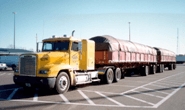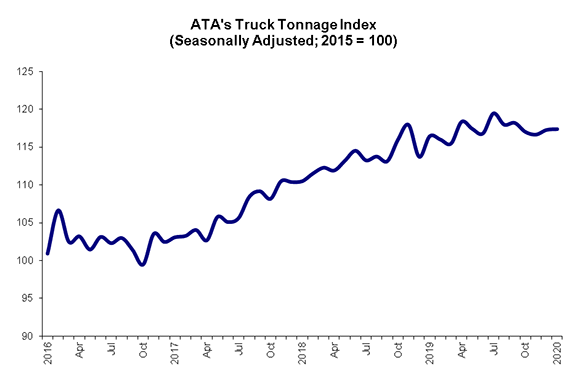Logistics

February 17, 2020
ATA: Trucking Seasonally Slow
Written by Sandy Williams
For-Hire Truck Tonnage rose 0.1 percent in January to 117.4. The January increase follows a 0.5 percent increase in December, reports the American Trucking Association.
“Over the last two months, the tonnage index has increased 0.6 percent, which is obviously good news” said ATA Chief Economist Bob Costello. “However, after our annual revision, it is clear that tonnage peaked in July 2019 and, even with the recent gains, is down 1.8 percent since then. Softness in manufacturing and elevated inventories continue to weigh on the truck freight tonnage.”
DAT Trendlines reports that truckload rates have moved lower this month as the industry’s slow season kicks in.
The national average spot rate for vans, flatbeds and reefer trucks fell in February. National flatbed rates, after toeing the line at $2.17 per mile in December and January, slipped to $2.14 per mile in February. Flatbed rates ranged from a low of $1.88 in the West to a high of $2.39 per mile in the Midwest in the week ending Feb. 16.
“Rates often hit their lowest point of the year in February, and this year is no different,” said DAT.
The national flatbed load-to-truck ratio for the period was 19.82, up from a 14.94 ratio at the end of January. Load-to-truck ratios are derived from the number of loads posted for every truck posted on DAT Load Boards and can signal impending rate changes.
As of Feb. 15, the national diesel fuel price was $2.96 per gallon, down from $3.01 per gallon at the end of January.







